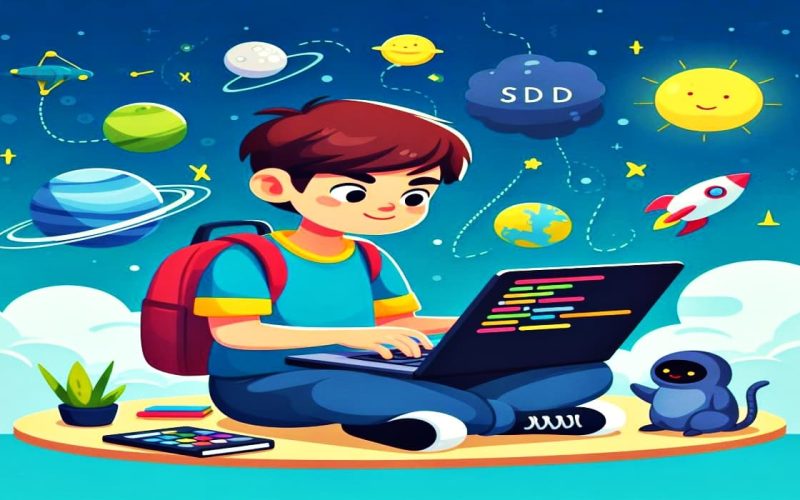Parents everywhere are eager to sign up their kids for online coding classes to ensure they’re ready for life and the workforce of the future. Nobody can say with 100% accuracy what the future will hold, but surely, in our digital society, it will be high-tech!
How can parents know which online coding classes are better than others? Here’s a checklist that outlines what the best coding classes offer.
1. Fun and Video Games Above All
Parents want their kids to learn to code online, but having fun after school is even more important. The best coding programs embed games into their classes by teaching kids how to design and program their own video games, ones they can play afterwards with friends and family.
Parents and teachers won’t have to push kids very hard to learn when the goal is something they’re so hungry to achieve. Gamification dynamics make learning as addictive and engaging as playing video games.
2. Small Classes
Some coding programs claim to teach STEM skills and everything kids will need to know in the future, but they’re overly packed with students, making for a distractive environment where learning is difficult. Students shouldn’t have to deal with busy teachers who are more concerned with classroom management than teaching.
The best coding courses limit sessions to four students per class, so every child gets their teacher’s full attention.
3. Leading Coding Languages
Avoid the coding classes that rely too heavily on programs like Scratch, which is more of a drag-and-drop program designed to give kids a sense of what coding is like rather than a proper coding language employers look for in prospective employees. Nobody uses Scratch in the field to make video games, apps, or websites.
Instead, look for a program that teaches kids the popular, in-demand coding languages, such as:
- C#
- C++
- Java
- Python
- JavaScript
The classes should be engaging for young students who are brand new to coding but never overwhelming. As students develop and hone their skills within each language, they progress to the next until they develop confidence and expertise in that language, too.
4. Expert Teachers
Finally, the leading coding courses hire computer science and computer engineering students who also grew up playing video games to pass on their knowledge to the next generation. Such an approach has multiple benefits.
Kids should learn how to code games from teachers who also played computer games growing up and have the expertise and domain knowledge. Practically speaking, high school students have the perfect resources to speak to about the coding jobs available and where else programming can take them after school when their teachers are also navigating the same situation.
Every computer-related program for kids promises to give a strong foundation in STEM skills, but they’re not all the same in quality. Before signing up your child for an after-school coding course, you should know how to recognize a red flag or the signs of a great coding program when you see them.








